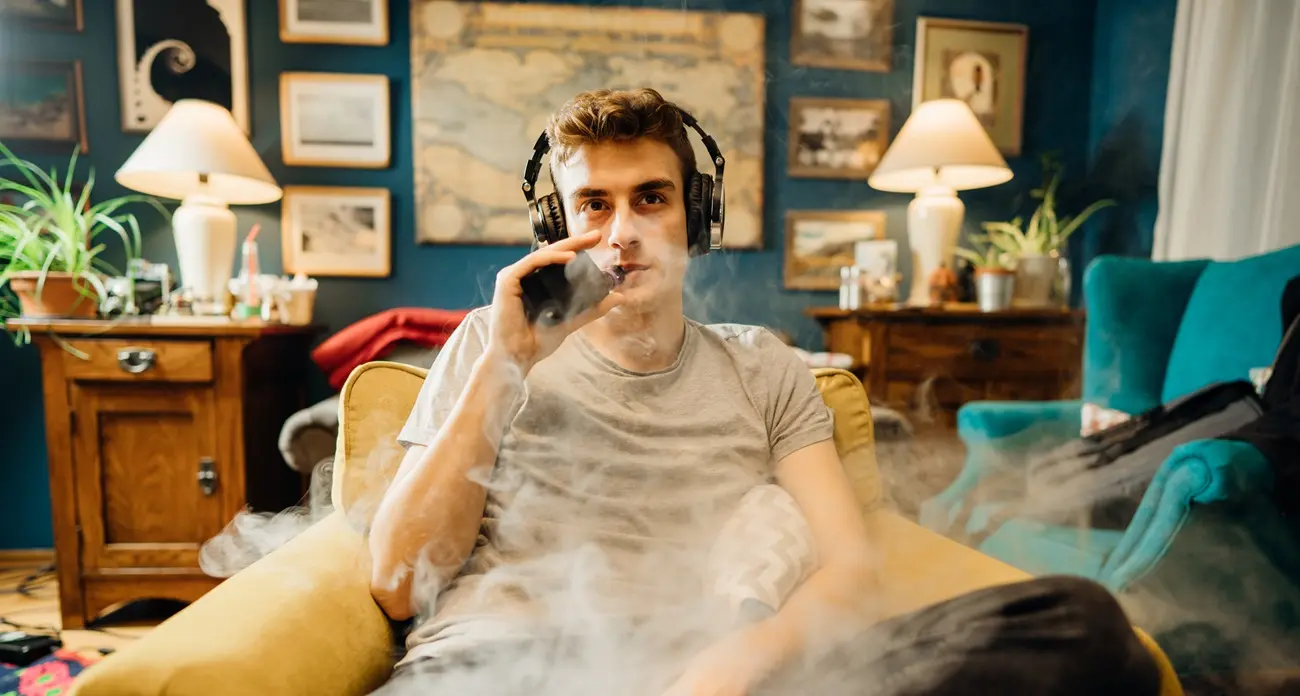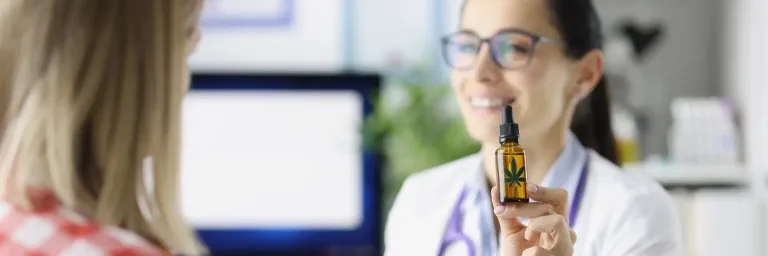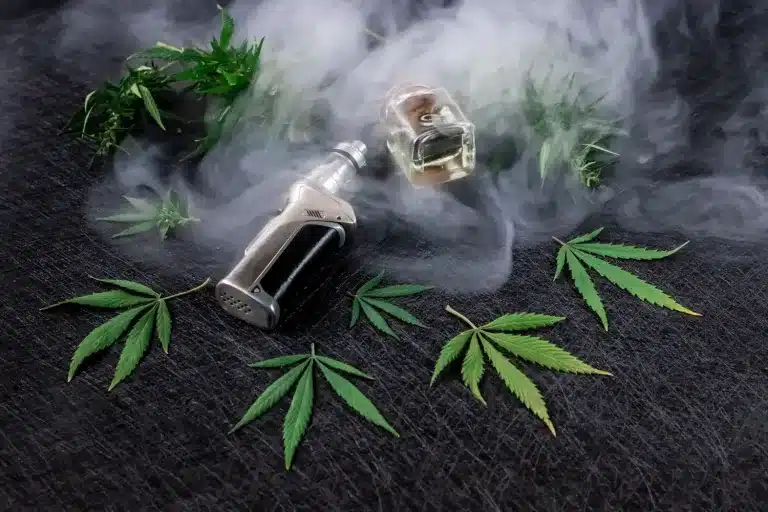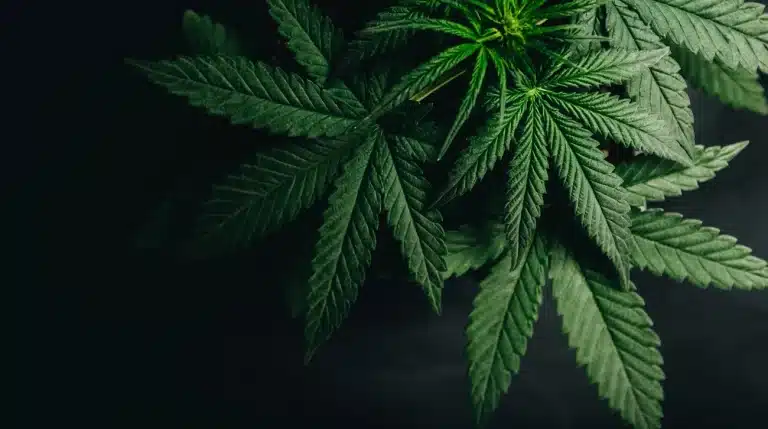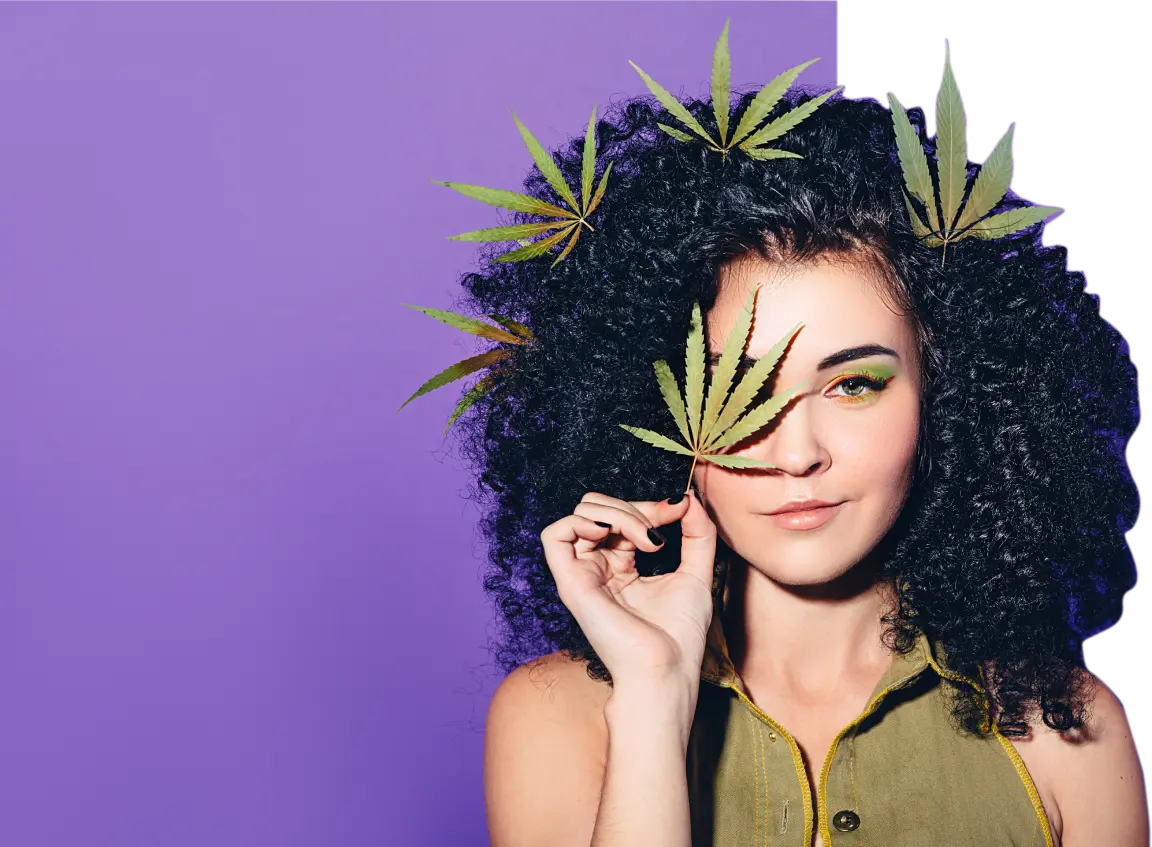- Understanding the Connection: Cannabis and Mental Health
- How Cannabis Interacts with the Brain and Body
- Safety Precautions for People with Mental Disorders Using Cannabis
- Methods of Cannabis Consumption to Treat Depression and Anxiety
- What Is the Optimal Cannabis Dosage for Anxiety and Depression?
- Find Your Perfect Medical Cannabis Products at Windy City Cannabis
88% of Americans support the legalization of cannabis for medical purposes and recreational use. As it becomes more socially acceptable and accessible with legalization, many are turning to cannabis as a potential treatment for various mental health afflictions.
But does cannabis help with depression and anxiety?
In short, it depends on your mental state, the type of cannabis, and your genetic predisposition.
Whether you are curious about integrating cannabis into your current treatment plan or looking for alternative options, we hope this blog will provide valuable insights and information to help you make informed decisions about your mental well-being.
Understanding the Connection: Cannabis and Mental Health
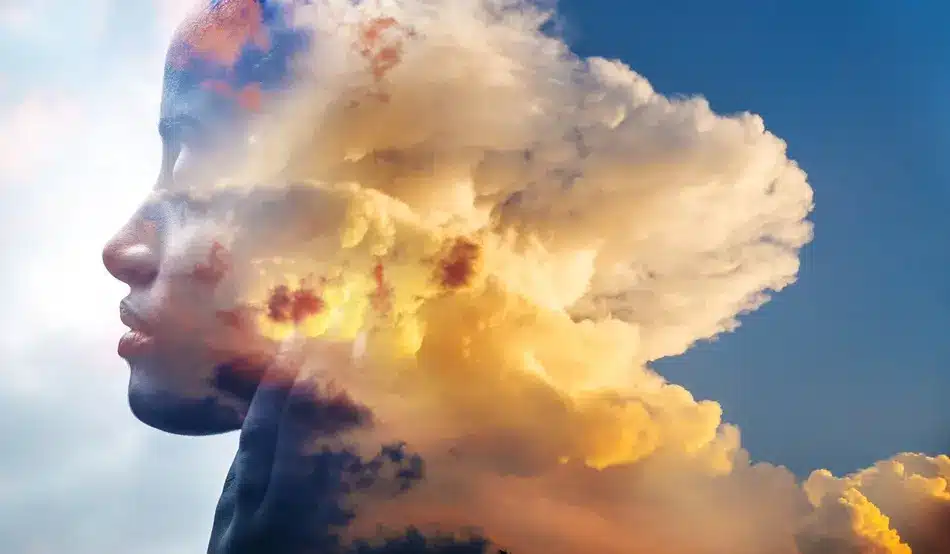
Mental health is a complex and multifaceted subject that can’t be fully explored in a single article. However, it is essential to understand the distinction between three common conditions: stress, anxiety, and depression.
- Stress is the body’s response to challenging situations. Symptoms include increased heart rate and breathing, anxiety, irritability, and difficulty focusing. It is usually short-term but is considered chronic if it lasts for several weeks or months and is not relieved by coping strategies or lifestyle changes.
- Anxiety is characterized by excessive worry and fear, often accompanied by physical symptoms like muscle tension and difficulty breathing. A generalized anxiety disorder becomes problematic when it is extreme, persistent, and interferes with daily functioning.
- Depression is a mood disorder that causes persistent sadness and a loss of interest or pleasure in once enjoyable activities. Depression symptoms vary in severity and can interfere with daily functioning and overall quality of life. The diagnosis of clinical depression involves a comprehensive evaluation by a healthcare professional.
Using these terms interchangeably can exacerbate mental health issues, especially if self-diagnosed online. That’s why it’s always best to consult with a mental health specialist before using any treatment, including cannabis, for medical reasons.
Moreover, medical cannabis for anxiety and depression can have negative and positive effects. There are also conflicting reports attributed to testing limitations, insufficient data and psychiatry research, and lack of industry regulations.
For example, The National Institute of Health says young men who use cannabis have the highest risk of schizophrenia. To be clear, this is if they have a cannabis drug abuse problem. On the other hand, according to The Washington Post, cannabis can relieve anxiety when its level of THC is low.
How Cannabis Interacts with the Brain and Body
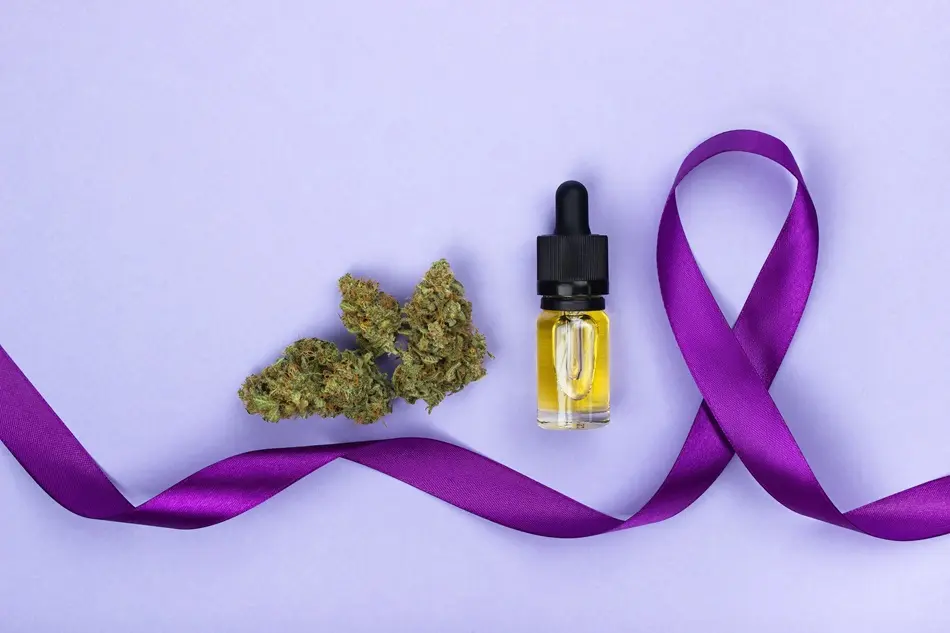
Cannabis is a plant with psychoactive properties used for recreational and medicinal purposes. It contains cannabinoids that react with the body’s endocannabinoid system – a network of receptors and signaling molecules that regulate many bodily functions, including mood, pain, and sleep.
Imagine the endocannabinoid system as a lock and key system. Cannabinoids are the keys, and the receptors are the locks. When a cannabinoid binds to a receptor, it unlocks a cascade of cellular events that can lead to various effects.
One of the most well-known cannabinoids, tetrahydrocannabinol (THC), mainly binds to receptors in the brain, affecting our perception, mood, and memory. It is responsible for the psychoactive effects of cannabis, such as feeling relaxed or “high.”
Cannabidiol (CBD) is another cannabinoid that, unlike THC, CBD does not produce a “high.” Instead, it can have calming and anti-inflammatory effects. CBD mainly binds to receptors in the body, helping to alleviate pain, reduce inflammation, and promote relaxation.
As per the National Institute of Health, there are over 400 different phytocannabinoids in the cannabis plant. Some cannabis treatments consist solely of CBD, while others utilize the whole plant, and more controversial treatments blend CBD with THC.
Therefore, the exact effects produced by cannabis depend on whether it has THC and/or CBD. Cannabis’ potency also varies greatly depending on the strain, cultivation methods, and processing techniques.
Then, there are also factors such as a person’s age, gender, genetics, and tolerance, which contribute to different outcomes. It’s partly why, for instance, Harvard Medical School publications have found CBD can reduce pain and help with insomnia but also increase nausea and irritability.
Safety Precautions for People with Mental Disorders Using Cannabis
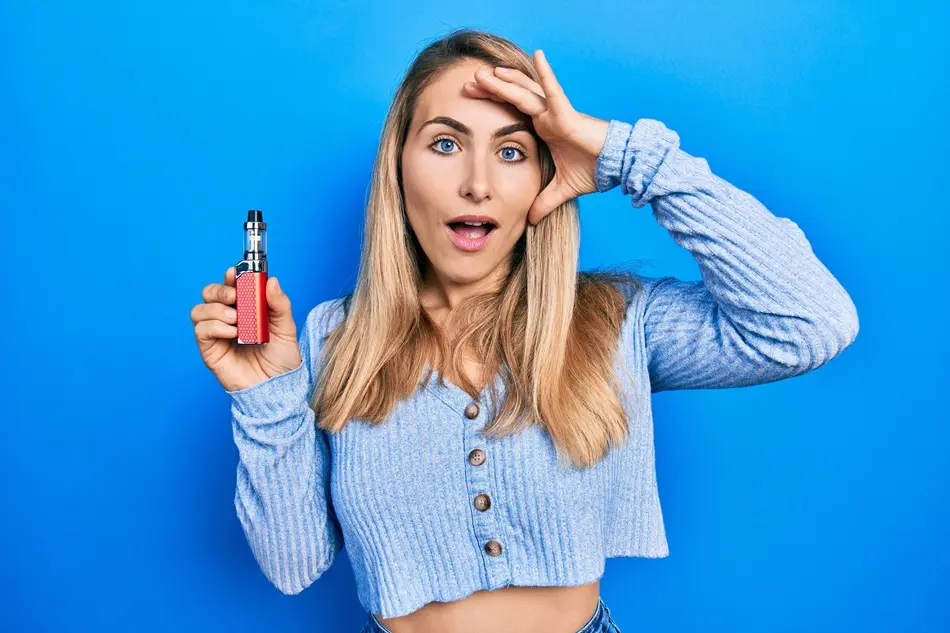
With the growing popularity and legalization of cannabis, it is important to consider the safety precautions for individuals with psychiatric disorders and those on certain medications using cannabis to treat anxiety and depression.
Unpredictable Response and Sensitivity
One of the significant risks associated with cannabis use and mental disorders is the unpredictable response that they may have to the substance. This is because cannabis can interact with the brain in various ways, depending on the individual’s neurochemistry and mental health condition.
For example, for people with schizophrenia, cannabis may exacerbate their symptoms and even trigger psychotic episodes and other mental health conditions. On the other hand, medical cannabis for depression and anxiety may provide temporary relief but can also aggravate their symptoms in the long run.
Interactions with Medications
Cannabis has the potential to interact with various medications, including over-the-counter pain relievers and prescription anticonvulsants used by individuals with epilepsy. Therefore, it is essential to consult with your doctor before combining marijuana with other medicines.
It is generally recommended to avoid mixing cannabis with opioids, sedatives, blood thinners, and tricyclic antidepressants. While further research is still needed, medical professionals warn against potential negative side effects between medical cannabis and psychiatric medications.
Risk of Dependency
The United States Center for Disease Control and Prevention estimates that approximately 10% of cannabis users may experience addiction, while 30% may develop a drug disorder.
While both addiction and drug disorder involve the use of drugs, addiction is typically classified as the more severe outcome, characterized by compulsive and persistent drug use despite adverse effects.
In comparison, drug disorders may refer to consistent but less severe or moderate drug use, yet both negatively impact a person’s physical and mental health, relationships, and finances.
Methods of Cannabis Consumption to Treat Depression and Anxiety

Cannabis can provide short-term relief for anxiety and depression.
Take a look at the most commonly used forms of cannabis to treat depression and anxiety:
Smoking
Smoking entails grinding cannabis dried flowers and packing them into a smoking device or joint. Consuming cannabis prerolls provides almost immediate effects because the cannabinoids are absorbed directly into the bloodstream through the lungs. As a result, it is a popular choice for individuals seeking immediate relief from pain, insomnia, or anxiety.
Vaping
Vaping cannabis is a method of inhaling cannabis vapor produced by heating dried flowers or concentrated forms of the plant, such as oils or wax concentrates. Cannabis vapes have become popular due to their convenience and reduced exposure to harmful toxins and carcinogens. The vapor produced by the device is also less pungent and dissipates quickly.
Edibles
Cannabis edibles are food items, such as gummies, chocolates, cookies, and drinks infused with CBD extract, a non-psychoactive compound in the cannabis plant. Their main advantage is that they offer an easy and convenient way to consume CBD without smoking or vaping. When ingested, CBD is metabolized by the liver and released into the bloodstream, resulting in longer-lasting effects.
Tinctures
Cannabis tinctures are concentrated extracts from soaking CBD-loaded hemp flowers in alcohol, vinegar, or glycerin. They contain potent CBD and other beneficial compounds from the hemp plant. To use, a few drops are placed under the tongue with a dropper. This allows for rapid absorption into the bloodstream via the sublingual glands. Effects can typically be felt within 15-30 minutes and may last several hours.
Topicals
Cannabis topicals are topical products that contain hemp-derived CBD and are designed to be applied directly onto the skin, hair, or nails. They come in various forms, such as creams, lotions, balms, oils, and even patches, and are usually infused with essential oils, vitamin E, and aloe vera to provide added benefits to the skin, including treating pain and inflammation.
What Is the Optimal Cannabis Dosage for Anxiety and Depression?

Generally, you should start with a low dose of cannabis, such as half a gummy or one drop of oil, and increase the dosage until you feel the desired effects. This could involve beginning with 20 to 40 mg daily and adding 5 mg weekly until you feel your symptoms are being effectively addressed.
For example, if you are experiencing severe anxiety, you could start with 40 mg daily. On days with intense pain, you may take 40 mg. After one week, you might increase to 45 mg and 50 mg after a second week. By this point, your pain may be more easily manageable.
It’s always best to talk to a healthcare professional who knows about cannabis for the best results. They’ll provide personalized advice about the best methods and dosage for using cannabis based on your specific needs and health history.
Find Your Perfect Medical Cannabis Products at Windy City Cannabis
We offer a wide variety of high-quality products to meet the diverse needs of medical cannabis users. Our knowledgeable staff is dedicated to providing exceptional customer service and guidance in finding the perfect products for each individual.
With our commitment to safety, education, and innovation, we strive to create a comfortable and welcoming experience for all our customers. Trust in Windy City Cannabis to help you find the best cannabis products for anxiety and depression to improve your health and well-being. Contact us to buy medical cannabis today.
Sign Up for Our Rewards Program
Find your perfect cannabis products at Windy City Cannabis. Whether you’re a medical or recreational user, we’ve got you covered.
